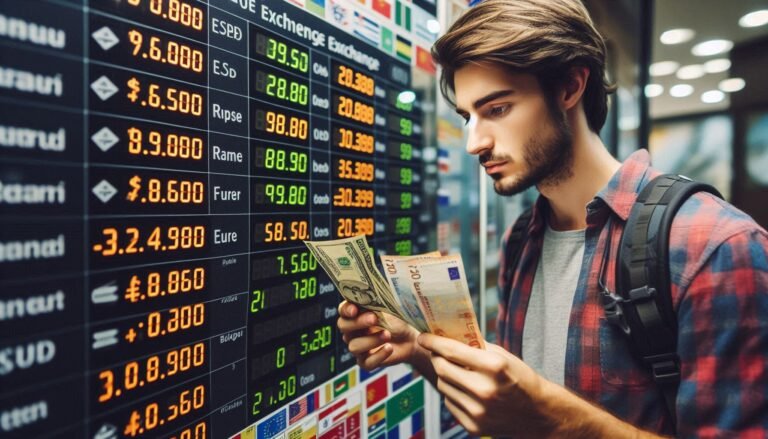Is Now the Right Time to Exchange Currency? Expert Insights on Market Trends
Currency exchange rates fluctuate constantly, making it tricky to decide when to buy or sell foreign currency. Whether you’re a traveler, an investor, or a business owner dealing with international transactions, timing your currency exchange strategically can save you a significant amount of money.
So, how do you know if now is the right time to exchange currency? In this article, we’ll dive into key market trends, expert insights, and practical strategies to help you make an informed decision.
Understanding Currency Exchange Trends
Foreign exchange (Forex) markets are driven by economic, political, and financial factors that influence the value of one currency against another. While exchange rates fluctuate daily, they generally follow predictable long-term trends based on:
- Interest Rates & Inflation – Higher interest rates typically attract investors, strengthening a currency. On the other hand, rising inflation can weaken it.
- Global Economic Events – Political instability, trade agreements, or economic crises can lead to sudden shifts in exchange rates.
- Supply & Demand – If demand for a currency is high (e.g., during a tourist season), its value tends to rise.
- Central Bank Policies – Government interventions, such as currency devaluation, can impact exchange rates.
By monitoring these fundamental factors, you can get a better idea of whether now is the right time to exchange currency or if it’s better to wait.
When is the Best Time to Exchange Currency?
There’s no single “perfect” moment to exchange money, but here are some general guidelines based on market trends.
1. Exchange When Your Domestic Currency Is Strong
A strong domestic currency means you’ll get more foreign currency in exchange. For example, if the U.S. dollar strengthens against the euro, it’s a great time for American travelers or businesses to exchange USD for EUR.
Pro Tip: Track currency strength by following financial news updates.
2. Avoid Peak Travel Seasons
During holidays and tourist-heavy seasons, demand for certain currencies (such as the euro in summer or the Mexican peso in winter) increases, leading to worse exchange rates.
Pro Tip: Exchange money in advance to avoid seasonal spikes in demand.
3. Monitor Central Bank Announcements
Central banks control interest rates and monetary policy, which directly impact currency values. If a country announces a rate hike, its currency is likely to strengthen. If rates are cut, its currency may weaken.
Pro Tip: Keep an eye on Federal Reserve (USA), European Central Bank (ECB), and Bank of England (BoE) policy meetings.
4. Look for Market Volatility Events
Elections, economic reports, and geopolitical tensions can create sudden market swings. If an event is expected to weaken a currency, exchanging beforehand can lock in a better rate.
Pro Tip: Use an economic calendar (available on Forex websites) to track key events.
5. Consider Historical Exchange Rate Trends
Studying past exchange rates can reveal patterns that help predict future movements. Some currencies follow seasonal trends or move in cycles.
Pro Tip: There are websites that provide historical rate charts for comparison.
How to Get the Best Exchange Rate Right Now
Once you’ve determined the right time to exchange currency, you’ll want to maximize your money by avoiding hidden fees and bad rates. Here’s how:
- Compare Rates Before Exchanging
Never accept the first rate you see—banks, airports, and exchange kiosks often add hidden markups. Check live rates using apps like Wise, Revolut, or Google Exchange Rates.
- Avoid Airport & Hotel Exchanges
These locations charge higher fees and offer worse rates because they cater to last-minute travelers. Instead, exchange currency at banks or online forex platforms.
- Use a Travel-Friendly Debit or Credit Card
Some banks offer no foreign transaction fees on purchases, saving you money compared to cash exchanges. Look for cards with zero FX fees, like Wise, Revolut, or Capital One’s travel cards.
- Consider Forward Contracts (For Businesses & Large Exchanges)
If you’re exchanging a large amount of currency, locking in today’s rate with a forward contract can protect you from future fluctuations.
- Withdraw Local Currency from an ATM
If you’re traveling, withdrawing small amounts from ATMs abroad may be cheaper than exchanging cash—just be mindful of ATM fees from your bank.
Should You Exchange Now or Wait?
Here’s a quick summary to help you decide:
Exchange Now If:
- Your domestic currency is stronger than usual
- A central bank is lowering interest rates in the target currency’s country
- A geopolitical event is likely to weaken the foreign currency
- You’re traveling soon and want to lock in today’s rate
Wait If:
- Your currency is currently weaker than normal
- A major financial event is coming that could increase volatility
- Historical trends suggest a better rate in the near future
Final Thoughts
Timing your currency exchange can save you money and help you get the best value for your transactions. By staying informed about market trends, economic indicators, and exchange rate fluctuations, you can make a smarter financial decision.







